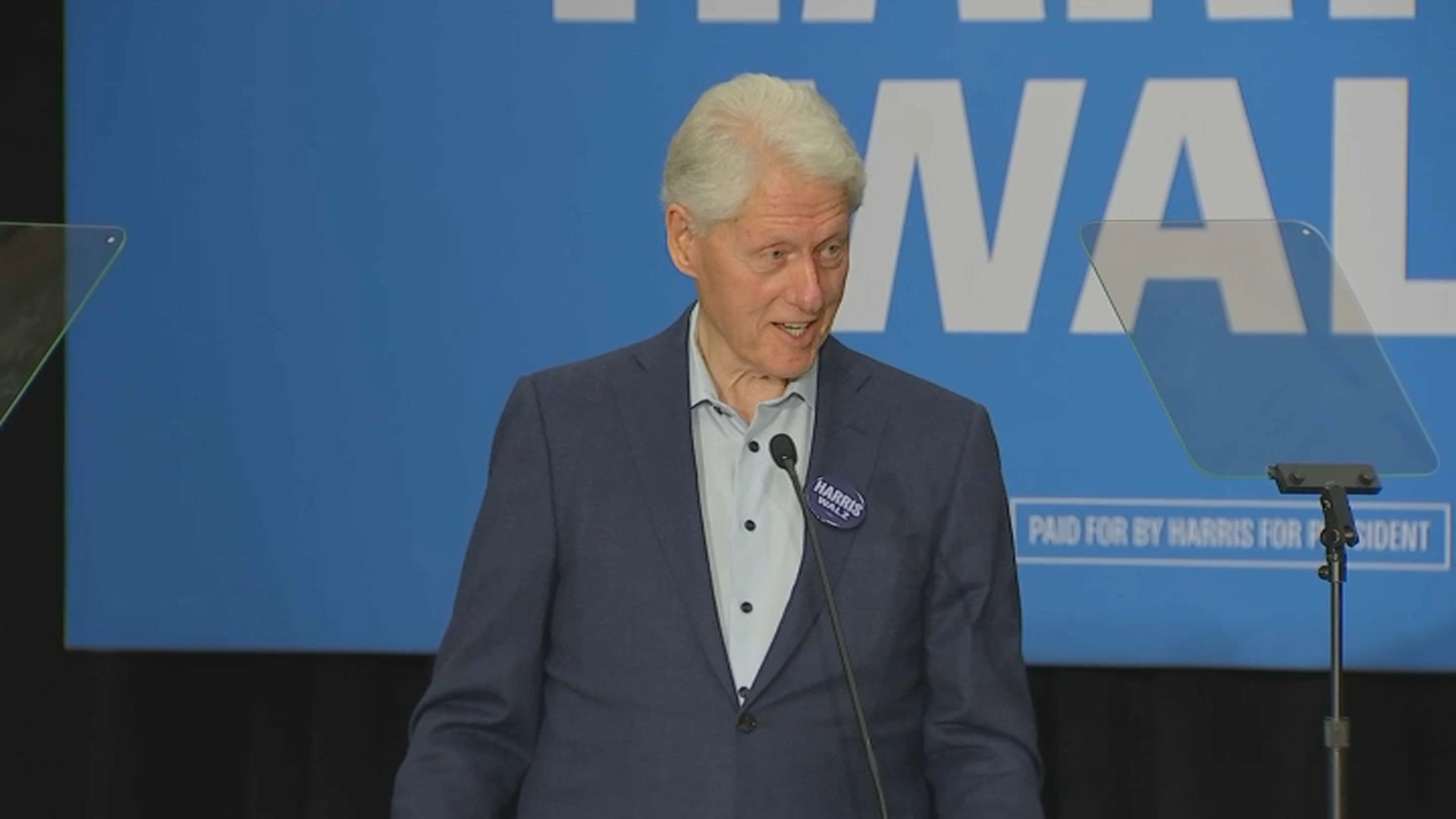Maine Republicans and Democrats heading to the polls on June 12 must figure out new ballots that will let them rank some candidates for the first time.
Tuesday's ballots ask voters to fill in ovals to rank gubernatorial candidates and a few legislative and federal hopefuls from favorite to least favorite.
Maine is the first state to adopt a system called ranked-choice voting, which makes its statewide debut in the primary election.
Voters also will be asked whether they want it to continue, with a ballot initiative that seeks to use ranked-choice for U.S. House and U.S. Senate elections in November.
SO HOW DOES THIS SYSTEM WORK?
Voters rank candidates from first to last on their ballot, and the election is over if one candidate wins a majority — 50 percent plus 1 — of the vote. If not, candidates are eliminated one by one and their remaining votes reallocated in what amounts to a mathematical game of survival.
The eventual winner might not be the candidate who had the most first-place votes, but rather the one who tallies the highest number of second- or even third-place votes.
Politics
Voters can also simply fill in one oval with their first-choice candidate and leave the rest of the ballot blank, as at least one Republican candidate is asking supporters to do.
Republican gubernatorial candidate Mary Mayhew is encouraging her supporters to circumvent the system by voting for her and leaving the rest of the ballot blank. Her spokeswoman, Zach Lingley, said Mayhew believes ranked-choice is unconstitutional.
Meanwhile, Democratic gubernatorial candidates Mark Eves and Betsy Sweet are asking Mainers to vote for them as their first and second-place canidates. The two said they coordinated a multi-candidate strategy as a way to boost the chances that one of them would move on to the general election from a primary field of seven Democrats.
WHAT ARE THE BENEFITS?
Advocates of the system say it helps promote civility, end election spoilers and ensure the eventual winner receives majority support.
Supporters also say the system avoids the cost of a separate runoff election and encourages collaboration among candidates.
Some proponents have pointed with dismay to Republican Gov. Paul LePage's election in 2010 with 38.1 percent of votes in a five-way race.
But legal questions about ranked-choice voting, however, will prevent its use in the November gubernatorial election, no matter how Mainers vote Tuesday. Lawmakers have lacked support to start the process of changing Maine's constitution to allow ranked-choice voting for all races.
WHAT ARE DRAWBACKS?
Critics say ranked-choice is confusing and leads to bland campaigns in which candidates steer clear of contentious topics because they don't want to alienate any voters.
Jason McDaniel, associate political science professor at San Francisco State University, says his research shows ranked-choice voting increases the rate of ballot errors and disqualifies ballots, particularly among lower-income residents.
SO, WHY IS MAINE USING RANKED CHOICE VOTING?
The history of ranked-choice voting in Maine dates back to 2001 when a lawmaker introduced a bill to create such a system.
The idea gained support — with Portland adopting the system for mayoral races in 2010 — but it was unsuccessful statewide until 2016 when 52 percent of Maine voters OK'd the system by ballot referendum.
Nine of the past 11 gubernatorial elections have resulted in winners who had failed to get a majority of the vote. Electoral reform group Fair Vote and the Texas-based nonprofit Action Now Initiative have provided hundreds of thousands of dollars to bring ranked-choice voting to Maine.
In May 2017, Maine's high court advised that parts of the ranked-choice voting law are unconstitutional when it comes to legislative and gubernatorial November elections.
Lawmakers last fall blocked the rollout of ranked-choice voting. They passed a law essentially giving voters until Dec. 1, 2021, to change the Maine Constitution to allow the system to be used in gubernatorial and legislative elections.
Supporters got enough signatures to allow the use of ranked-choice voting in Tuesday's gubernatorial and legislative primaries. A separate ballot question on Tuesday aims to nullify the legislative delay, letting the system go into effect in some November elections.
WHO ELSE USES IT?
The system is used in 11 local jurisdictions across the country, including San Francisco and Maine's largest city, Portland.
DO I HAVE TO BE A REGISTERED DEMOCRAT OR REPUBLICAN TO VOTE TUESDAY?
No.
Maine's election Tuesday is not just about party primaries.
All voters will also be deciding a ballot question to require Maine to continue to use ranked-choice voting for future primaries and federal races.
That includes the U.S. House and U.S. Senate elections in November.
WHEN WILL MAINE KNOW ITS PRIMARY WINNERS?
It could take some time.
Democratic Secretary of State Matthew Dunlap says that if there's no majority winner in Tuesday's primary elections, then the results of additional rounds of ranked-choice tabulations won't be known until sometime in the following week after the election.
Dunlap said a courier service has been contracted to begin retrieving the results from town clerks two days after the election, or Thursday.
The office isn't committing to a day in which the unofficial voting outcome will be announced but said it will be in the week after the election.



